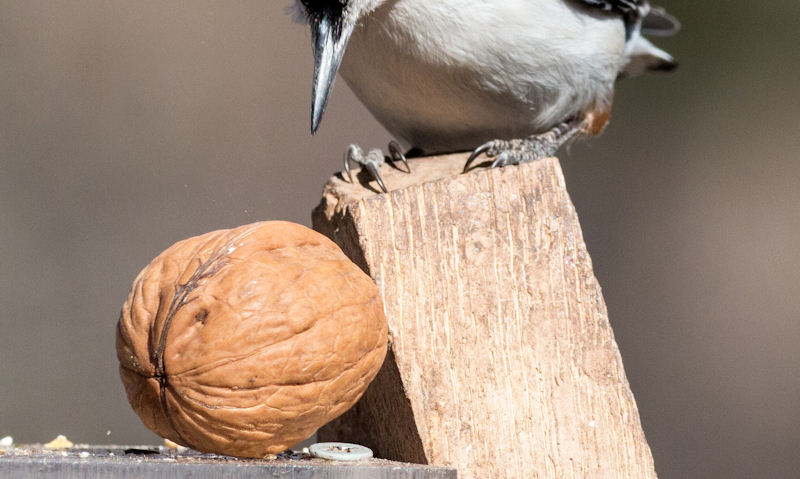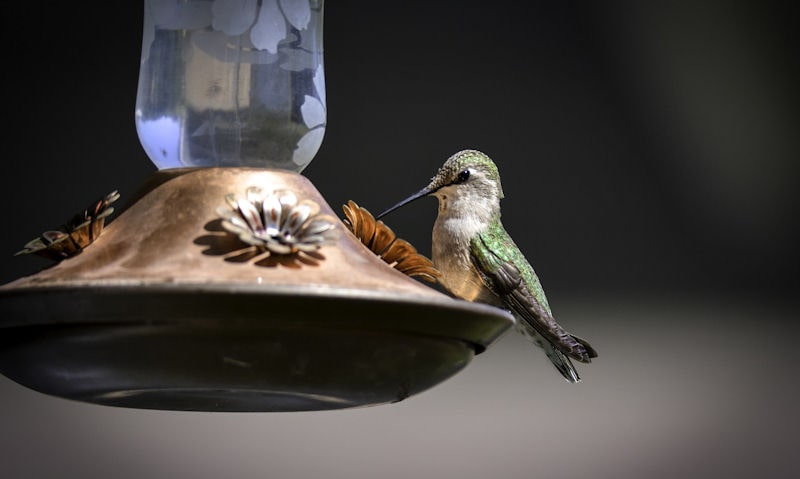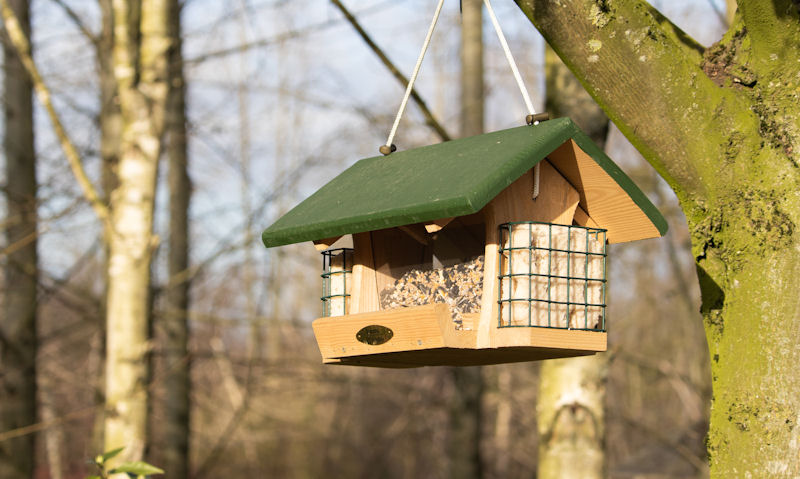Do wild birds eat Walnuts
With peanuts commonly fed to our backyard birds, its any wonder you want to know if you can feed wild birds walnuts, and with you able to, no nut feeder would be involved.
Its safe to say wild birds can and do eat walnuts if fed to them out of its rock hard shell, with the walnut guaranteed to be unsalted with no special coatings. Walnuts, like any nut is a great source of protein which nut-eating birds will benefit. Soft texture which is pleasing to wild birds but can be crushed up.
No fewer than thirty common backyard birds have the potential to feed on walnuts, if only they're offered out of their impossible to penetrate, super hard shell.
Its a common sight to see Chickadees or Jays feeding on peanuts in their shell, whereas a rock hard walnut shell would never be broken in to by these same bird species.
Birds like common ground feeding Blue Jays or Steller's Jays would appreciate walnuts offered whole, set on top of an open accessible platform bird feeder or dish situated in a visible spot in the hard.
Whereas other bird feeder able birds such as Warblers, Titmouse, Chickadees, Wren's and Woodpeckers of course - would expect crushed up walnuts positioned on a high but open area on a railing, tree branch or on top of a fence.
Nutcrackers will eat your walnuts whole or crushed but this often upside down feeding bird, along with Woodpeckers may leave walnuts to others.
It is possible to provide crushed up walnuts on the outer tray of a corresponding peanut or seed bird feeder, whilst avoiding use of walnuts in feeders all together.
If you insist on putting walnuts in a bird feeder, keep them whole but out of their shell still. With only a handful of walnuts put in a wire mesh peanut feeder that is guaranteed to be quickly eaten up.
Birds can eat Walnuts out of shell
With no shortage of the nut-eating birds who will feed on your walnuts, that is unless you are prepared to give birds walnuts out of their shell, as it would be near impossible for birds to eat walnuts else.
Not so for Sparrows, Cardinals, Grosbeaks or Finches as their short cone-like bill is designed to open the hardest nut or seed shells.
Come to think of it, you can assume wild birds can eat all nuts commonly made available to people - which are safe to consume for birds.
What kind of nuts our birds eat at our feeders would normally be peanuts out of their shells - or a pile can be offered on an flat platform - or nuts can be added to a dish to allow birds other than bird feeder able birds to eat tasty walnuts.
It isn't to different when offering walnuts to birds who would feed on peanuts; only you can't really depend on a bird feeder as walnuts will rot before they're touched.
With pecans being a very similar nut in texture, taste and look, you'd can also feed wild birds pecans the same way as you would walnuts to birds.
To only offer whole or crushed up walnuts to birds by themselves can go unnoticed, thus it doesn't hurt to group walnuts alongside peanuts, seeds or suet - if you really want them to all be eaten up before they go bad.
Unsalted shelled Walnuts safe
What can be a serious health hazard to birds when feeding them nuts like cashews or peanuts, is that people can forget wild birds can't eat salt, as its toxic to them.
When making use of random store-bought walnuts still in their shell, you don't have to worry yourself about salt content as walnuts can't be salted or are rarely roasted still in their protected shell.
Walnuts are a safe nut to serve up to wild birds because to break them out of their shell, they would be ready to be eaten in your yard.
Where you must tread carefully is when offering wild birds walnuts directly out of a whole foods or standard packet of walnuts - that are out of their shells, and ready to be eaten.
Likely way whole food walnuts will be presented is unsalted of course, because they are for a balanced, healthy diet. Whereby a regular bag of walnuts could have added salt plus additional ingredients which can be toxic to birds.
Play it safe with your regular backyard bird visitors by only offering them freshly opened, out of their shell, unsalted, unroasted walnuts.
Similarly, walnuts could be part of a nut mix or walnuts can occasionally be thrown in with dried fruits which will likely be salted; thus its important to never give walnuts or any other kind of nuts to birds if out of a fruit and nut mix.
Soft Walnut texture is pleasing to birds
Why its likely you'll see an increase in wild birds potentially feeding on more walnuts than their regular peanuts, is because the humble walnut is a softer to bite nut.
Birds are fully capable of crunching into a slightly hard peanut, cashew, pistachio, or even a Macadamia nut you can give to birds. Only a walnut has a soft, pleasant texture that goes easy when birds feed on them.
Birds won't feed mostly on walnuts if all they're feeding on is peanuts, as it needs time for birds to get used to eating walnuts; but your be surprised how easy a walnut is eaten by many different bird species in your yard.
When peanuts are taken up out of their feeder or indeed if fed to birds on a tray, birds will be seen to break up peanuts or other nuts with it in their beak.
With walnuts being a little more on the pricier side you don't want birds to waste them.
Its important then to offer only a small amount of preferably crushed up peanuts at a time, until birds know where to find them. Whole walnuts will be eaten but as most birds break them down to ingest, most will be wasted on the ground.
Lightly crushed in tray
Pleasing as it is for most nut-eating birds to bite into a soft walnut, they can indeed by left whole but birds can benefit if the large walnut is broken up.
Simply take a handful of walnuts you intend to feed birds whilst crushing them all up in a fist, or place them in a towel to bang them with the underside of a pan.
No need to go overboard as you want walnut bite size bits, not tiny nut crumbs that would only blow away in the wind.
Birds would prefer a bite size walnut to pick up in their bill to further break up, thus it isn't necessary to turn them into crumbs.
Lightly crushed walnuts will now go into an open dish or a bird feeder pole mounted tray, which the crushed walnuts can go in without risk of too small crushed up bits dropping in-between the gaps in the metal mesh wire.
You may still have to depend on mixing whole and crushed up walnuts with peanuts or, and a seed mix to get birds attention.
Summary
Like all nuts given to our wild birds we often play around with, walnuts will provide an amazing source of energy, which is vital we serve up nuts more in wintertime.
Birds can eat your walnuts if fed to birds out of their shell, as fewer than four bird species could open a super hard walnut shell. Whereas most common backyard birds won't ever reach the walnut - let alone would they come to a walnut still in its shell.
Open up your walnuts to provide birds out of the shell whilst carefully discarding the shell bits, as its a choking hazard.
When giving birds walnuts directly out of their shell as you guarantee one thing; walnuts in use are not salted nor are they roasted or have any special coatings. Salt is toxic to our wild birds thus its vital no salt content is given to birds.
Great advantage when feeding birds walnuts is that the birds will be pleasantly surprised at the soft texture of a walnut, so it could be a popular choice.
To feed birds walnuts out in your yard it doesn't hurt to put a mix of crushed up and whole walnuts into a dish, plus an area that is open to the elements where birds frequent.
Birds do and can eat walnuts if fed to them in your yard if out of your feeder. Prioritize a railing, a dish, tray or open platform feeder to place walnuts - which would preferably be mixed in with peanuts or seeds so walnuts aren't missed out.


